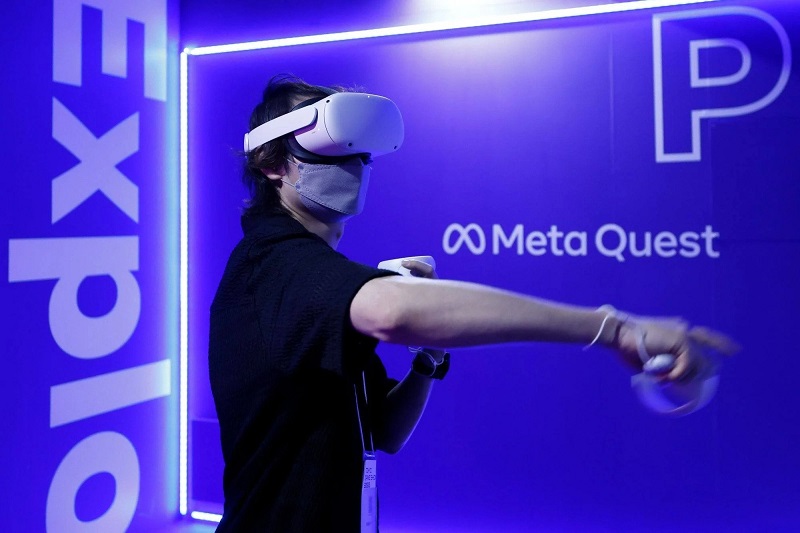
China, with its massive population of 1.4 billion people, presents a significant opportunity for the virtual reality (VR) market. However, Meta, formerly known as Facebook, has been unable to tap into this lucrative market due to the platform being blocked in China since 2009.
According to reports from the Wall Street Journal, Meta CEO Mark Zuckerberg is now looking to re-enter China with its VR headset, Quest. The company has reportedly been in talks with various Chinese tech firms, with the most progress made with entertainment conglomerate Tencent.
Late in 2022, discussions between Meta and Tencent reached a critical point when Tencent’s Chairman, Pony Ma, stated that the company would explore potential deals during negotiations. This raises the question of what a potential Meta-Tencent deal would entail.
The ban on Facebook and Twitter in China in 2009 was due to censorship regulations, following the Ürümqi riots in China’s Xinjiang Uyghur Autonomous Region. In recent years, Zuckerberg has been seen as unfriendly towards China, partly due to Meta’s response to competition from Chinese tech giants like ByteDance, the owners of TikTok, whom Zuckerberg claims have stolen technology.
Tencent, founded in 1998, is a conglomerate with subsidiaries worldwide specializing in entertainment, internet-related services, AI, and other technologies. It owns brands like Epic Games, Riot Games, and Ubisoft, as well as the instant messaging and social media app WeChat. Tencent has investments in over 600 companies and is among the top ten most valuable companies globally.
The details of a potential Meta-Tencent deal have not been publicly disclosed yet. VR content distribution and moderation for the Chinese market could be points of contention for both companies. It has been suggested that Meta’s existing global offerings would coexist with Tencent’s apps and services.
Previous attempts to bring Meta’s VR hardware to the Chinese market included a partnership with Xiaomi in 2018 to launch a Chinese version of the Oculus Go. However, with the upcoming launch of Meta Quest 3, there is no similar manufacturing deal in place in China. Therefore, a collaboration with Tencent would likely differ from the Xiaomi deal and focus on Meta’s full entry into the rapidly growing Chinese market.
Releasing the Quest in China could help Meta recoup some of the significant investments it has made in developing the metaverse. With many leading VR developers based in China, Meta’s presence could contribute to Beijing’s aspirations of becoming a hub for metaverse innovation and development.







